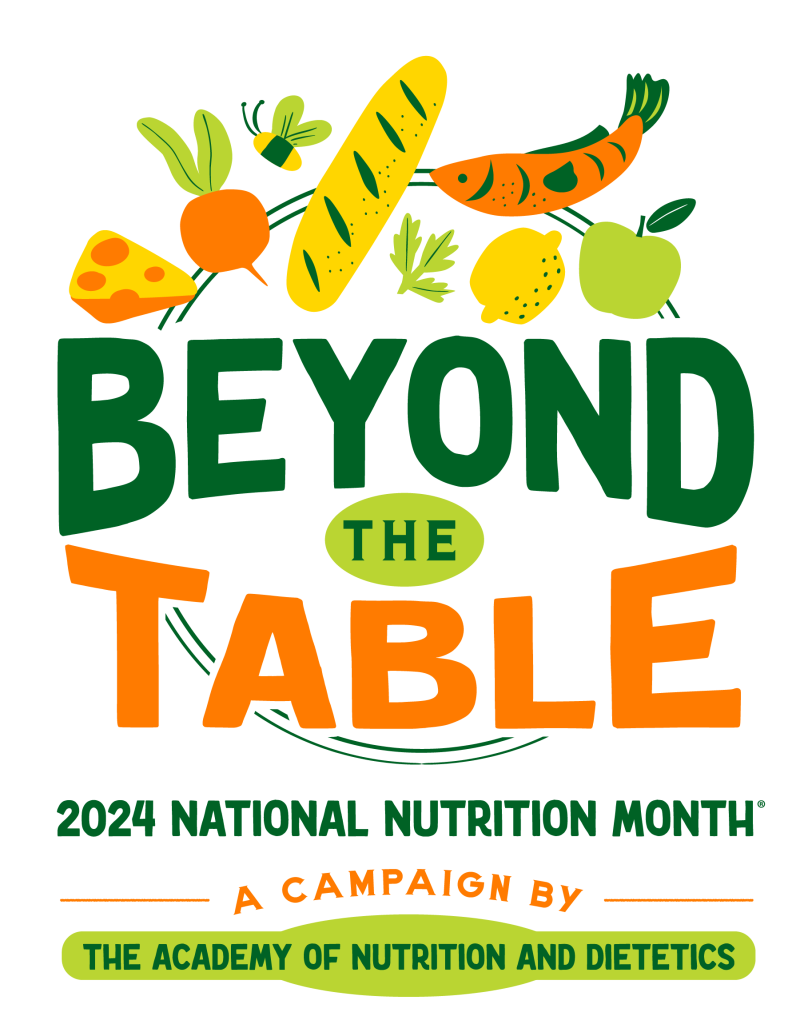Beyond The Table
Look Beyond the Table this March to see the impact that food choices have on your mind, body, and environment. National Nutrition Month is celebrated every March and gives you the opportunity to learn about making healthy food choices. This year, Hopkins Dining is focused on how to nourish yourself on a budget, how to eat more sustainably, and the social and cultural importance of food.

Budget-friendly Nourishment
A healthful diet includes fruits and vegetables (frozen, canned or fresh), lean proteins, and whole grains. Many people assume that a healthy diet is an expensive one but this is far from the truth. Here are a few tips to purchase those foods without going over budget:
- Plan your meals before going to the store and strive to make a few meals at home per week
- Purchase ingredients in bulk (when able)
- Take advantage of weekly grocery deals, coupons, and mark-downs
- Limit purchase of convenience foods
- Nutritious low-cost foods to keep on hand:
- Lentils, canned beans
- Potatoes
- Grains: rice, quinoa, oats, barley
- Frozen, canned or in-season fruits and vegetables
If you would like more information about healthful eating on a budget, but are not sure where to start, attend our Hopkins Dining Cooking Series this month. We will review how to stock a pantry and cook healthfully on a budget.

Your Plate Impacts the Environment
It is important to consider the impact your food choices have on the environment. Luckily, food that is good for the environment often aligns with food that is good for your body and budget. Vegetables, legumes, grains, and fruits typically have a lower environmental impact and cost less than animal-based foods like meat, dairy, and eggs. Putting these environmentally-conscious foods at the center of your plates can help the planet, your wallet, and your health.
Being a smart shopper can also help you be more eco-conscious by preventing food waste. Make sure to purchase only what you need for the week and freeze what you can to ensure that you don’t have to throw away food that could otherwise be eaten. Avoid purchasing individually wrapped foods when possible and buy dry goods in bulk to reduce packaging. And don’t forget to bring your reusable shopping bags to reduce waste and save a few cents at the store!
Hopkins Dining makes the healthy choice, for you and the environment, the easy choice. Our locations offer a variety of vegan and vegetarian meals to help you put plants at the center of your plates. All of our fresh eggs, milk, and hamburger patties are local and support family-owned farms that practice sustainable practices. Additionally, a majority of our animal products come from animals that are raised humanely and with antibiotics or hormones. When in season, we source locally and sustainably grown produce for our students to enjoy. We also offer discounts to customers who bring reusable mugs to our coffee locations to reduce our campus’ waste footprint. We are investigating other ways of incorporating reusable containers so that students can feel good about their environmental impact whether they dine in or take their food to go.
Social & Cultural Impact of Food
Food impacts more than physical health. Food cultivates relationships, contributes to personal happiness, and impacts mental health. Food connects us to our communities, encourages us to learn about other cultures, and helps us create shared experiences. Meals are a great way to share an experience with others. Talking about food allows us to share stories about our lives in a way that helps us all stay connected with our communities and relationships.
Traditional foods are an important component of cultural identity and often times traditional recipes are passed down through generations. Traditional dishes can help you explore another culture by learning about how the food is made and eaten. Check out the Passport station at Hopkins Café to explore new foods! The theme rotates weekly giving you an opportunity to various food items.

